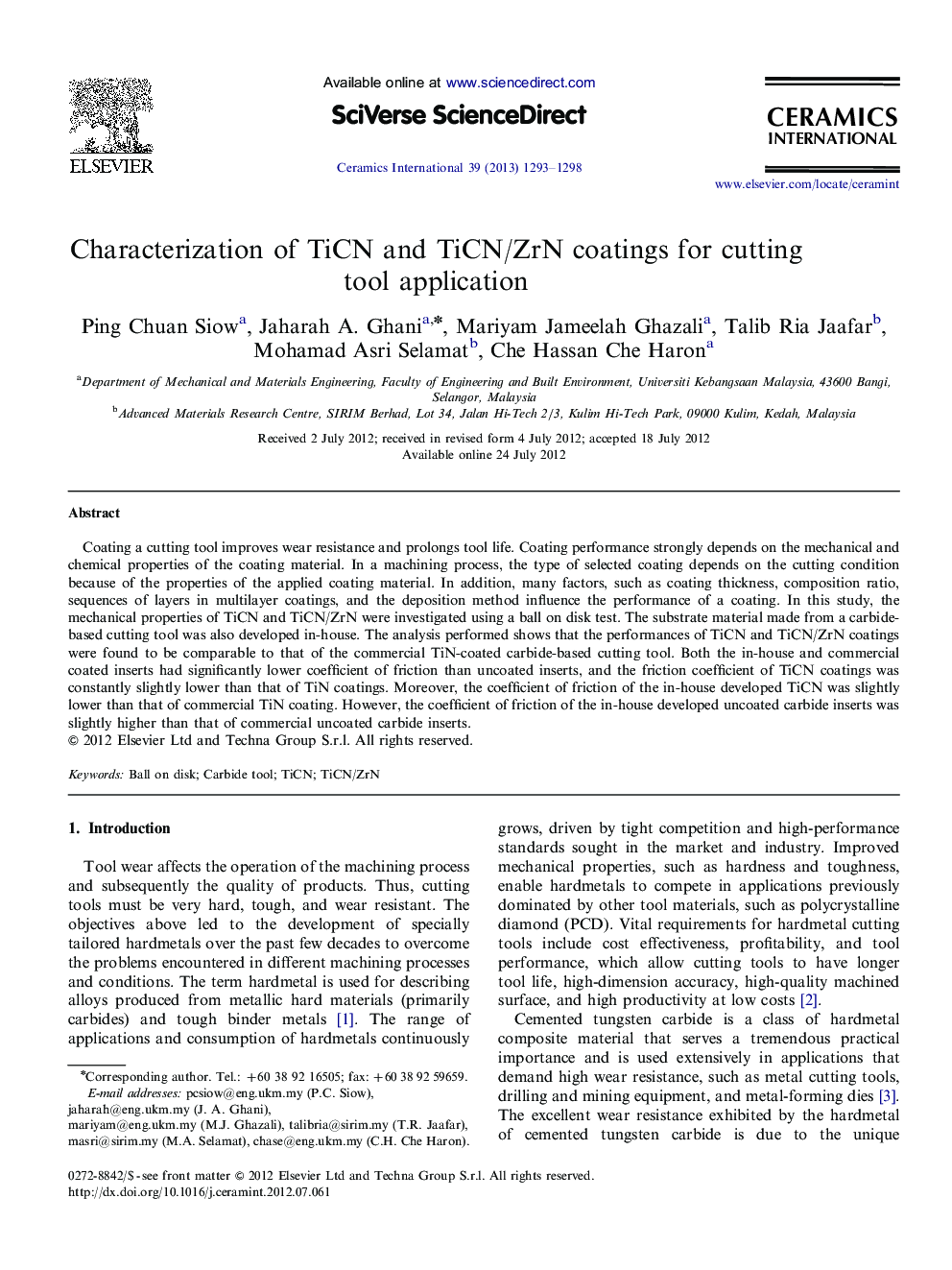| Article ID | Journal | Published Year | Pages | File Type |
|---|---|---|---|---|
| 1462169 | Ceramics International | 2013 | 6 Pages |
Coating a cutting tool improves wear resistance and prolongs tool life. Coating performance strongly depends on the mechanical and chemical properties of the coating material. In a machining process, the type of selected coating depends on the cutting condition because of the properties of the applied coating material. In addition, many factors, such as coating thickness, composition ratio, sequences of layers in multilayer coatings, and the deposition method influence the performance of a coating. In this study, the mechanical properties of TiCN and TiCN/ZrN were investigated using a ball on disk test. The substrate material made from a carbide-based cutting tool was also developed in-house. The analysis performed shows that the performances of TiCN and TiCN/ZrN coatings were found to be comparable to that of the commercial TiN-coated carbide-based cutting tool. Both the in-house and commercial coated inserts had significantly lower coefficient of friction than uncoated inserts, and the friction coefficient of TiCN coatings was constantly slightly lower than that of TiN coatings. Moreover, the coefficient of friction of the in-house developed TiCN was slightly lower than that of commercial TiN coating. However, the coefficient of friction of the in-house developed uncoated carbide inserts was slightly higher than that of commercial uncoated carbide inserts.
